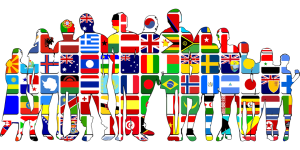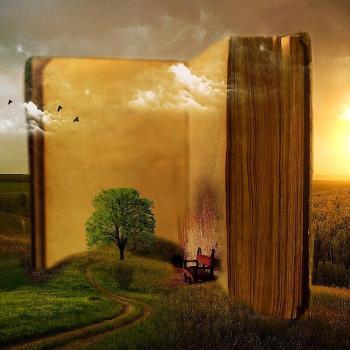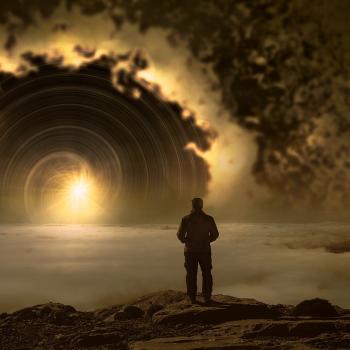
Conservatives have a public relations problem. Whether you think it is justified or not, the notion that we don’t appreciate diversity has been foisted upon us. It’s common for the political left to think of conservatives as uncultured and tribal. The portrait painted by those who don’t like conservatives looks like a bunch of overweight white guys in jeans and rebel flag t-shirts. At best, they are well-intentioned fools who just happen to be stuck in the past. At worst, they are little Nazis running around plotting how they can kill or enslave all those who don’t look and think like them.
In my experience (despite these sorts of stereotypes) conservatives have embraced diversity in measure well beyond what I have seen in liberal circles.
Those of you reading this will surely have various experiences along these lines. Perhaps the conservatives you have known were insular, uneducated, bigoted, and generally politically foolish. Conversely, perhaps the liberals you have engaged with have been thoughtful, open-minded, and generally well-educated. All this shows is that there is a diversity of thought, personalities, loyalties, and such in both conservative and liberal camps.
When it comes to an appreciation of diversity, liberals do not have a corner on this issue. Despite our popular stereotypes, conservatives can draw on our rich heritage to not only appreciate diversity but to offer objective reasons for why we ought to appreciate and cultivate it. This brings me to the point of this post.
In this post, I will offer some conservative theological support for why we ought to value diversity.
The Key Principles
I will leverage two principles in support of my claim that we ought to value diversity:
- God as Creator displays His manifold goodness in the created order by means of the diversity we find in the world.
- Man as created in the image of God is a sub-creator and as such ought to follow God’s creative example.
The first principle provides the grounding for the objective value of diversity. The second principle provides a reason for why human beings ought to appreciate diversity and foster it.
Diversity in the Created Order
According to worldatlas.com, there are over 925,000 identified species of insects. The same source estimates that there are 18,000 or more species of birds. The Encyclopedia Britannica states that there are more than 99,000 species of fungi! These facts are compounded as you go through the list of living and non-living things. I don’t think any further examples are needed to demonstrate that our world has been filled with immense diversity. These facts strongly resonate with those of us who maintain that God literally brought this diversity into being. Anyone who is closely connected to nature and believes that God created it must, at one point or another, ask what this stunning array of diversity implies about the Creator.
Implications of Diversity
Perhaps it implies that all of this diversity is required in order for human life to exist. But I doubt that is true. I would find it hard to believe that God created 99,000 different species of fungi because if He had only created 98,999 species, life on earth would be impossible. What I think this implies is that God’s creativity is expressed in Creation for more than merely utilitarian ends. I think there is an artistic and gratuitous diversity in His creative acts.
If that is so and if God creates only good things, then this artistic and gratuitous diversity is good. Christians generally accept the notion that God is all good. In fact, we usually take it a step further and say that God is the source of all goodness that exists. Thus any goodness we find in the world finds its ultimate source in God. Furthermore, the Genesis account confirms that what God created was good.
What is more, God’s goodness and glory cannot be adequately displayed by any finite creature. In order to present His goodness in and through the world more fully, He must fill it with many finite things. Each of these things reflects something slightly different about the Creator. The diversity of life on earth, the diversity of tastes and smells and colors, and the diversity of culture all contribute to the rich texture of our world. This fullness testifies to the manifold goodness and glory of God.
Humans as Part of Creation
We find ourselves in the midst, then, of a bountiful world full of creatures that also tell us something about God. Where then do we fit in? What do we bring to this world that is uniquely human?
As rational agents, made in the image of God, we are able to create in ways that other animals are incapable of imitating. We can abstract from the world and use our reason and imagination to create extremely complex and interrelated things. Over the past several thousand years we have gone from making the wheel, to making machines that take us into space. Birds, on the other hand, still just make nests.
God has enabled this creativity by endowing us with reason. Reason is not merely the ability to perform calculations or logical analysis. Reason is a power of the soul that permeates our nature and all of its faculties. It is what delineates us from the other animals and as such it specifies what is unique about us. This unique feature of human beings is the thing that we do better than any other creature and because of this, reason is the glory of humanity.
Humans as Sub-Creators
J.R.R. Tolkien and C.S. Lewis talked about mankind as sub-creators. This isn’t something they made up, but it is something they popularized and nuanced. I tend to think this description is very fitting. All we need to do is look at what we have done to see that our creative energies have been manifested in more ways than we can count. We create medical devices that aid healing, cars to drive in, art to appreciate, weapons for war, and toys for children. The fact that human sub-creation is diverse, is a given. The only question is whether or not that sort of creative activity is good.
If God creates hundreds of thousands of species of insects, and we are sub-creators meant to reflect our Creator, then our diverse sub-creations are to be seen as a reflection of the image of God in us. To be sure, we can distort that creative energy and pour those energies into efforts that are not good. But the manifold uses of our creative acts are per se reflective of the Creator and hence good. I think this presents diversity (in general) as good and desirable.
Humans in the Context of Creation
Man’s glory is reason, but other creatures display God’s goodness and glory in different ways. Consider this passage from the book of Job:
Job 39:19-25
19 “Do you give the horse his might?
Do you clothe his neck with strength?
20 Do you make him leap like the locust?
His majestic snorting is terrible.
21 He paws in the valley, and exults in his strength;
he goes out to meet the weapons.
22 He laughs at fear, and is not dismayed;
he does not turn back from the sword.
23 Upon him rattle the quiver,
the flashing spear, and the javelin.
24 With fierceness and rage he swallows the ground;
he cannot stand still at the sound of the trumpet.
25 When the trumpet sounds, he says ‘Aha!’
The Holy Bible. (2006). (Revised Standard Version; Second Catholic Edition, Job 39:19–25). San Francisco: Ignatius Press.
This poetic description of the horse is found in God’s reply to Job. In it, He points out the glory and nobility of the horse. He does the same for the ox and the ostrich. God is telling Job, in elegant poetic fashion, about His intimate dealings with every creature that He has created. He isn’t just the God of mankind, He is the God over all of creation and He cares about it more than we do. This caring for all of creation, not merely the creation and redemption of man, should cause us to reflect on our relative importance in Creation.
God is God of the Entire World
God isn’t just interested in your getting you that next job or in answering your prayers about healing your family member in the hospital. He is interested and just as familiar with the fawn learning how to walk, the migrations of blue whales, and the instinctual behaviors of birds. His picture of the grandeur and beauty of creation encompasses not just the affairs of man, but the variegated affairs of the entire world. The glory of man then should be set within that greater context.
We understand this when we marvel at the vastness of the universe or when we show respect for the great apex predators that inhabit our planet. If we have a real appreciation for nature, we take time to stand in amazement at all of the splendor presented to us. These reactions in us speak to our recognition that humans are only a part of creation. And while we are an extremely valuable part of creation, there are ways God’s glory is reflected in the world that don’t include us.
Can Diversity Be Bad?
Finally, having offered some reasons for thinking that diversity is a good that should be pursued, I want to ask the question of whether or not diversity can be bad. To be sure, we might desire a diversity of tastes and sounds, and colors. We might travel over land and sea to learn about the novel ways of some obscure people group. Lest we have no limiting principle on the notion of the goodness of diversity, let’s consider a few other examples.
Would we want any of the following:
- A widely diverse educational level among our college professors? Such that individuals with no education at all are represented?
- A diverse criminal background in our pre-school teachers or elderly caregivers?
- A wide range of increasingly painful experiences?
- Leadership composed of a wide range of hate groups?
If you found people advocating these things, you would not admire them. You would either pity them or fight to stop them. In each case they might be pursuing “diversity” but we wouldn’t think that this is a good thing. What then is the difference? Why is diversity in general good, and yet there are examples of diversity that we would consider bad or undesirable?
Multiplying Evils
One reason has to do with the fact that everything God creates is good, but not every human production is good. As sub-creators, we have brought about a multeity of evils. Promoting a diversity of criminal behaviors in the name of “diversity as an intrinsic good” is absurd. Promoting this sort of nonsense would be tantamount to multiplying criminality as far as possible. No one with a decently ordered conscience would promote such a thing.
Intrinsic Goods Used For Evil
Another reason has to do with the fact that even intrinsically good things can be used for evil. For example, water is good. Without water, every one of us would die. But dunking someone’s head in water until they are brain dead is not good, even if water itself is good. Similarly, even if diversity is good, it doesn’t follow that every use or appeal to diversity is good. A diversity of knife wounds will kill you rather effectively.
Ideological Machinations
One of the more insidious uses of the good of diversity for nefarious ends is ideological warfare. This usually occurs when a group takes a small subset of legitimately good examples of diversity and parades them around as the only categories of diversity that are valuable. In our current political scene, we are all too familiar with the subset of categories: Race and Sex. The problem with this kind of use of “diversity” is manifold. Here I’ll mention only two problems.
The variegated world we live in puts on display a multitude of categories of diversity. To reduce our appreciation of diversity to two or three categories is a form of reductionism – which is boring. A true appreciation of diversity demands an appreciation of all relevant categories. Thus love of only two is not a true love of diversity.
When a couple of categories are exalted and all other categories trivialized or even demonized, diversity is not just unappreciated, it is despised. Our love of different types of animals, different genres of music, different flavors of food, and more generally different good things in our world displays a true appreciation of diversity.
Who Is the True Lover of Diversity?
The true lover of diversity is the one who searches the world for similarities and differences. For diversity is not a thing as such. You can’t hit diversity with your car or shoot it into space. Rather it’s a description of the similarities and differences of things in the world. Similarity is understood in light of difference and difference in light of similarity.
The lover of diversity thirsts for knowledge about different things because it paints a more unified picture of the world. He searches not for evils, but natural goods. He is not content with a superficial knowledge of the things he finds, but a depth of understanding so that he can relate what he learns to the things he already knows. And finally, he is humble enough to let the new items of knowledge inform and correct the old things that he learned.
References
- https://www.worldatlas.com/articles/how-many-species-of-insects-are-there.html
- https://www.worldatlas.com/articles/how-many-species-of-birds-are-there.html
- https://www.britannica.com/topic/list-of-fungi-2032576












